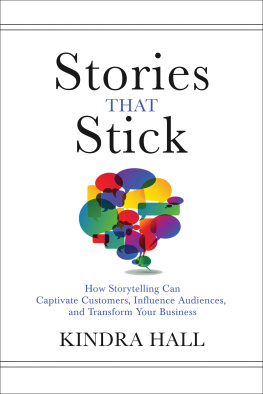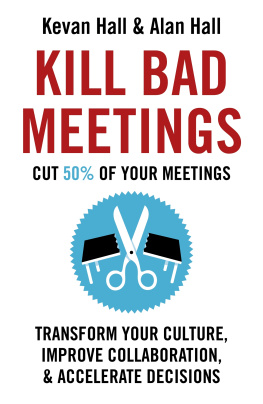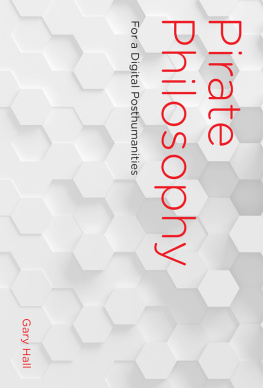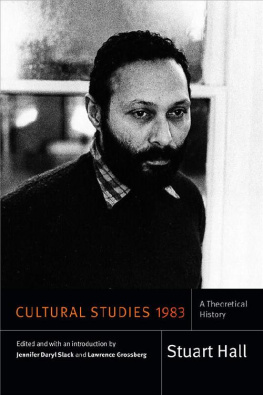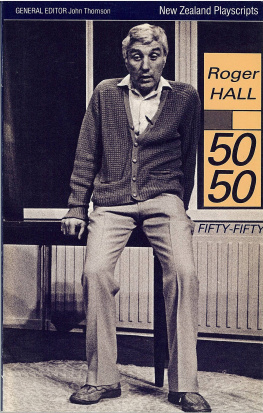Hall - The Uberfication of the University
Here you can read online Hall - The Uberfication of the University full text of the book (entire story) in english for free. Download pdf and epub, get meaning, cover and reviews about this ebook. year: 2016, publisher: University of Minnesota Press, genre: Politics. Description of the work, (preface) as well as reviews are available. Best literature library LitArk.com created for fans of good reading and offers a wide selection of genres:
Romance novel
Science fiction
Adventure
Detective
Science
History
Home and family
Prose
Art
Politics
Computer
Non-fiction
Religion
Business
Children
Humor
Choose a favorite category and find really read worthwhile books. Enjoy immersion in the world of imagination, feel the emotions of the characters or learn something new for yourself, make an fascinating discovery.
The Uberfication of the University: summary, description and annotation
We offer to read an annotation, description, summary or preface (depends on what the author of the book "The Uberfication of the University" wrote himself). If you haven't found the necessary information about the book — write in the comments, we will try to find it.
Hall: author's other books
Who wrote The Uberfication of the University? Find out the surname, the name of the author of the book and a list of all author's works by series.
The Uberfication of the University — read online for free the complete book (whole text) full work
Below is the text of the book, divided by pages. System saving the place of the last page read, allows you to conveniently read the book "The Uberfication of the University" online for free, without having to search again every time where you left off. Put a bookmark, and you can go to the page where you finished reading at any time.
Font size:
Interval:
Bookmark:
Forerunners: Ideas First from the University of Minnesota Press
Original e-works to spark new scholarship
F ORERUNNERS IS A thought-in-process series of breakthrough digital works. Written between fresh ideas and finished books, Forerunners draws on scholarly work initiated in notable blogs, social media, conference plenaries, journal articles, and the synergy of academic exchange. This is gray literature publishing: where intense thinking, change, and speculation take place in scholarship.
Ian Bogost
The Geeks Chihuahua: Living with Apple
Andrew Culp
Dark Deleuze
Grant Farred
Martin Heidegger Saved My Life
Gary Hall
The Uberfication of the University
John Hartigan
Aesops Anthropology: A Multispecies Approach
Mark Jarzombek
Digital Stockholm Syndrome in the Post-Ontological Age
Nicholas A. Knouf
How Noise Matters to Finance
Akira Mizuta Lippit
Cinema without Reflection: Jacques Derridas Echopoiesis and Narcissism Adrift
Reinhold Martin
Mediators: Aesthetics, Politics, and the City
Shannon Mattern
Deep Mapping the Media City
Jussi Parikka
The Anthrobscene
Steven Shaviro
No Speed Limit: Three Essays on Accelerationism
Sharon Sliwinski
Mandelas Dark Years: A Political Theory of Dreaming
Gary Hall
University of Minnesota Press
Minneapolis
Portions of The Uberfication of the University appeared in an earlier version as The Uberfication of the University, Discover Society, July 30, 2016, http://discoversociety.org/.
The Uberfication of the University by Gary Hall is licensed under a Creative Commons Attribution 4.0 International License.
Published by the University of Minnesota Press
111 Third Avenue South, Suite 290
Minneapolis, MN 55401-2520
http://www.upress.umn.edu
The University of Minnesota is an equal-opportunity educator and employer.
Fuck off and dieand not in that order.
Then London mayor B ORIS J OHNSON, speaking to a London taxi driver during a row over Uber, June 5, 2015
A T FIRST the 2008 financial crisis looked as if it was going to constitute a major threat to the long-term viability of neoliberalism. Viewed from our current vantage point, however, it seems merely to have given the champions of the free market an opportunity to carry out with increased intensity their program of privatization, deregulation, and reduction to a minimum of the state, public sector, and welfare system. The result is a condition we can describe as postwelfare capitalism.
The Uberfication of the University explores what neoliberalisms further weakening of the social is likely to mean for the future organization of labor by examining data and information companies associated with the emergence of the corporate sharing economy. It focuses on the sharing economy because it is here that the implications for workers of such a shift to a postwelfare capitalist society are most apparent today. This is a society in which we are encouraged to become not just what Michel Foucault calls entrepreneurs of the self but micro-entrepreneurs of the self, acting as if we are our own, precarious, freelance microenterprises in a context in which we are being steadily deprived of employment rights, public services, and welfare support. Witness the description one futurologist gives of how the nature of work will change, given that 30 to 80
The book analyzes the implications of this transformation to a postwelfare capitalist society for the organization of labor largely through the prism of those who work and study in the university. It does so partly because academics, researchers, and students are now being encouraged to become microentrepreneurs of themselves and of their own livesso even so-called good jobs are being affectedbut mainly because the university provides one of the few spaces in postindustrial society where the forces of contemporary neoliberalisms antipublic sector regime are still being overtly opposed, to a certain extent at least.
T ALK ABOUT BEING CAREFUL WHAT YOU WISH FOR: a recent survey of university vice-chancellors in the United Kingdom identifies a number of areas of innovation with the potential to reshape higher education. Among them are uses of student data analytics for personalized services (the number one innovation priority for 90 percent of vice-chancellors); uses of technology to transform learning experiences (massive open online courses [MOOCs]; mobile virtual learning environments [VLEs]; anytime-anywhere learning (leading to the demise of lectures and timetables); and student-driven flexible study modes (multiple entry points into programs, bringing about an end to the traditional academic year).one wonders whether any of those proclaiming the merits of such disruptive innovation have ever stopped to consider what a higher education institution emulating the expansionist ambitions of U.S. companies like Amazon and Google would actually mean for those currently employed in universities.
We can see the impact such aggressive, global, for-profit technology companies have on the organization of labor by looking at information and data analytics businesses associated with the sharing economy. Emerging from the mid-2000s onward, the sharing economy is a socioeconomic ecosystem that supplies individuals with information that makes access to things like ridesharing and sofa surfing possible on a more efficient, expanded basis. Indeed, because of the emphasis that is placed on the cooperative sharing and renting of preowned and unused goods, the activities and services of the sharing economy are frequently held as being very different from, or as even as offering an alternative to, those that are provided through private, state, or public channels. As such, the sharing economy is portrayed as a means of bringing community values back into the ways in which people consume. It is also said to help address environmental issues resulting from the depletion of the planets resources, for example, by reducing the carbon footprint of transport. Yet the sharing economy is just part of a much larger socioeconomic ecosystem, one that is dominated by the use of computing and satellite technology to coordinate workforces and create global transnational supply chains and that enables just-in-time manufacturing through the production of low-wage labor and the exploitation of outsourced workers. Given this, it is almost as if the sharing economy has been devised to take the edge off some of the harsher aspects of life in advanced, postindustrial capitalist society, including those that have been generated in the name of austerity: unemployment, precarity, increasing income inequality, large discrepancies in property ownership, high levels of debt, and low levels of class mobility.
Certain aspects of the sharing economy, however, are also helping to enact a significant societal shift. It is a shift in which state-regulated service intermediaries, such as taxi companies and hotels, are replaced by information and data management intermediaries, such as the start-ups Uber (an app that enables passengers to use their cell phones to hail a ride with a taxi, rideshare, or private car) and Airbnb (a community marketplace for renting out private lodging and other kinds of accommodation that, like Uber, was founded in San Francisco).unnecessary middlemen, what most of these for-profit start-ups are doing is corporatizing and selling cheap and easy-to-access assets that are underutilized. In the case of Uber and Airbnb, still the two best-known examples, these assets take the form of seats in vehicles and rooms in properties that are otherwise occupied on an infrequent and temporary basis. In other words, they are idle resources it has up until now been difficult for capital to commodify and whose value from an entrepreneurial point of view has therefore been wasted.
Font size:
Interval:
Bookmark:
Similar books «The Uberfication of the University»
Look at similar books to The Uberfication of the University. We have selected literature similar in name and meaning in the hope of providing readers with more options to find new, interesting, not yet read works.
Discussion, reviews of the book The Uberfication of the University and just readers' own opinions. Leave your comments, write what you think about the work, its meaning or the main characters. Specify what exactly you liked and what you didn't like, and why you think so.


